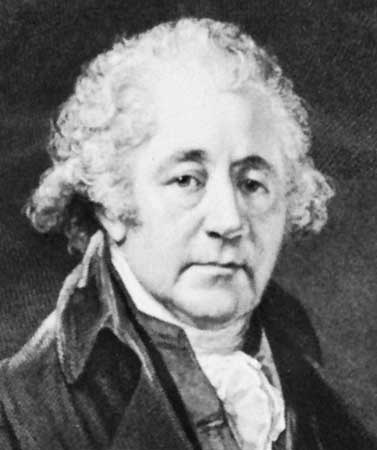Boulton, Matthew
British engineer and manufacturer
born Sept. 3, 1728, Birmingham, Warwickshire, Eng.
died Aug. 17, 1809, Birmingham
 English manufacturer and engineer who financed and introduced James Watt's (Watt, James) steam engine.
English manufacturer and engineer who financed and introduced James Watt's (Watt, James) steam engine.After managing his father's hardware business, in 1762 Boulton built the Soho manufactory near Birmingham. The factory produced small metal articles such as gilt and silver buttons and buckles, Sheffield plate, and a variety of other items. In 1768 Boulton made the acquaintance of James Watt. The need for a power source for his factory stirred Boulton's interest in Watt's invention. When the industrialist John Roebuck went bankrupt, Boulton accepted Roebuck's share in Watt's first steam-engine patent (1769) as repayment of a debt. In 1775 he and Watt became partners in the steam-engine (steam engine) business, obtaining a 25-year extension of the patent. Assisted by the engineer and inventor William Murdock (Murdock, William), they established the steam-engine industry by initially erecting pumping engines to drain the Cornish tin mines. Boulton foresaw great industrial demand for steam power and urged Watt to design the double-acting rotative engine, patented in 1782, and the Watt engine (1788) for driving the lapping machines at his factory.
In 1786 Boulton applied steam power to coining machinery, obtaining a patent in 1790. He made large quantities of coins for the East India Company and also supplied machinery to the Royal Mint. He became a fellow of the Royal Society in 1785 and established a theatre in Birmingham in 1807. By 1800, when Boulton's son Matthew Robinson Boulton took over his father's share of the business, almost 500 steam engines had been installed in the British Isles and abroad.